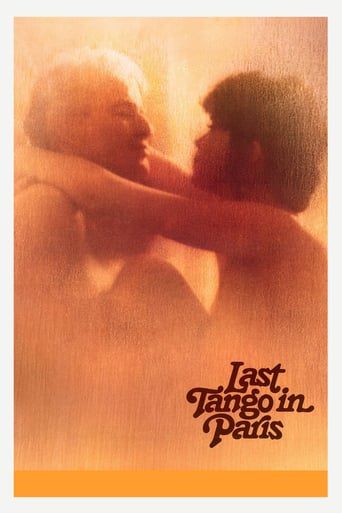
Grief is that human emotion that we all dread having to feel, and in so doing are sometimes obsessed by. When one of our friends goes through this sensation, we are fascinated and terrified at the same time. It is truly difficult to behave like a true friend during said friend’s time of grief. While cinema has always been fascinated by grief and its effect on people going through it, it takes a brave filmmaker who is willing to deal with grief head on. Directors such as Ingmar Bergman, and Bernardo Bertolucci are two such directors. Bertolucci’s, “The Last Tango in Paris”, tackles grief with few inhibitions, giving a raw-no-holes barred exhibit on the effects grief has on people
Bertolucci claims that he developed the film from his own sexual fantasies of having an anonymous affair with a beautiful nameless stranger. Marlon Brando (In a performance more impressive than his Don Corleone from the same year), is Paul, an ex-pat American hotel owner living in Paris, who, as the movie begins, is inspecting an apartment he wishes to rent at the same time as Jeanne (Maria Schneider), a young beautiful local girl is also there considering taking the apartment for herself. Finding themselves alone in the apartment, they are pulled together by a magnetic sexual attraction, resulting in a quick sexual act. Paul ends up renting the apartment, allowing Jean to stay there so that he can continue his affair with her. Their tryst revolves around playing various erotic games, while at the same time staying anonymous to each other, as Paul refuses to be told Jean’s name while not revealing his name to her. There is something a little off with Paul, as he shows very little warmth in his actions. This is clearly Paul’s fantasy, or is it? The fact that Jeanne continues to participate hints at her own feminine fantasy.
What does all this mature adult drama have to do with grief? It appears that Paul was once a young bohemian drifter who fell in love with a beautiful French hotel owner. That is how he ended up in Paris. They got married, ending his free-living style. We learn that his wife, whose name was Rosa, suffered from bouts of depression, and had just committed suicide by cutting her wrists. Her body was discovered by Paul, and it is during the week before the burial that Paul uses Jeanne in his attempts at escaping from his grief. It also became very apparent that Paul loved Rosa very much.
Marlon Brando was one of the greatest actors who ever lived. He had the ability to effortlessly breathe life into each of his characters. Colorful over the top characters become iconic, unforgettable depictions, and many of the lines from his movies became forever quotable. In Paul, he was given a man who is as normal and average as they come. A man who lets life and love dictate his life. A man who became the follower of the person who took his heart. Yet there exists within his soul a free spirit begging to be let out. When Rosa dies, he is free of the entrapment of love, and he expresses this through the sexual games he plays with Jeanne. One great example of his need to take extremes to move away from the grief that envelopes him when Rosa dies is an infamous rape scene that has recently become even more controversial, as Schneider has since hinted that she was at least psychologically raped, if not physically, during the filming of this scene. Yet, Brando makes this transformation of Paul within these games with a stranger feel like a cry for help. Watching the movie, I was fascinated as Brando’s Paul interacted with first, his dead wife’s lover, then his mother-in-law, and finally, in an unforgettable scene, with his wife’s dead body. Paul goes through the emotional gamut of anger, bitterness, and scorn while grieving for his greatly loved wife. This really emphasized the feeling of a great intense love that Paul had for Rosa. Finally, I realized that throughout the movie this man is grieving. Even when he is with Jeanne. It is an unforgettable performance that lingers well after the movie ends.
This is a Bertolucci film, and Bertolucci was always an emotional painter of cinema. His movies are always beautiful to watch, and “The Last Tango in Paris” is no exception. Paris is one of the most filmed cities in the cinema, but I have rarely seen a great city look as poetic as in this movie. The city has color but is not too bright and seems to be pictured surrounded by a spectacular azure blue sky shown in the distance. The minimalistic apartment space of the flat relates to brilliant shadows within the orange-framed blinds and blank walls, which serve to elegantly frame the two protagonists as they emotionally probe each other in their sex games. This is a lovely movie to behold.
A lot has been written concerning the movie’s bleak ending. What I thought interesting was how the ending worked to remove the masque of anonymity, not only at face value, but as to how the two characters perceive each other. As the nameless man who rents the apartment, Paul was mysterious, handsome, and magnetic to Jeanne. Once he is revealed to her as being Paul, he becomes a middle-aged obsessive prowler who deserves to die. The ending, while definitive, is anything but conclusive. It is a fitting ending for such a deep film.
With, “The Last Tango in Paris”, Bertolucci has succeeded in mixing emotion, senses, and eroticism to create one of the great mature adult dramas of cinema. It can truly be described as a masterpiece.

